
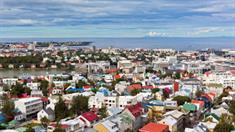
Reikiavik es la capital de Islandia y una ciudad vibrante con mucho que ofrecer. Aquí están algunos [...]
Ciudad capital con museos de historia vikinga, iglesia Hallgrimskirkja, bares y balneario de la lagu[...]
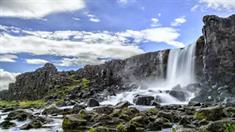
Rincón protegido de gran belleza con paisaje rocoso, lagos, crestas y un santuario histórico naciona[...]
Parque natural y enclave histórico islandés con la sede del Parlamento Alþing y la catarata Öxarárfo[...]

Jökulsárlón es un lago glaciar que linda con el parque nacional de Vatnajökull, en el sudeste de Isl[...]
Laguna glacial de Islandia con témpanos, el glaciar Breiðamerkurjökull y focas.Te recomendamos viaja[...]
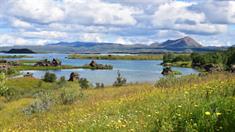
Mývatn es un lago volcánico ubicado al norte de Islandia. En su costa nororiental está el pueblo de [...]
Lago al norte de Islandia, junto a Reykjahlíð, con los baños termales de Mývatn y la solfatara de Hv[...]
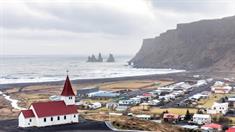
Vík í Mýrdal es un pueblo alejado frente al mar situado en el sur de Islandia. Se encuentra a la som[...]
Pueblo del sur de Islandia con la playa Reynisfjara, los acantilados de Reynisfjall y el arco Dyrhól[...]

Glaciar, senderismo, cueva y cascadaTe recomendamos viajar entre el 28 nov. – 5 dic. para obtener un[...]
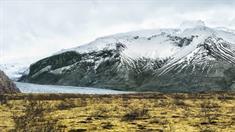
Parque nacional glacial de 14.000 km², con rutas de senderismo, 4 centros de visitantes y [...]
Zona de naturaleza virgen con volcanes, ríos, cascadas y puntos de referencia como el glaciar de Vat[...]
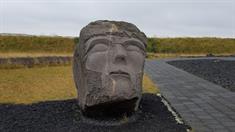
Keflavík es un centro urbano de Islandia, con una población de unos 14.000 habitantes. Se encuentra [...]
Aurora polar, museo y géiserTe recomendamos viajar entre el 28 nov. – 5 dic. para obtener un buen pr[...]
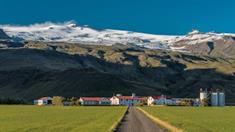
Eyjafjallajökull, es el sexto glaciar más grande y uno de los más antiguos de Islandia. Cubre un á[...]
Volcán, glaciar, senderismo y aventuraTe recomendamos viajar entre el 28 nov. – 5 dic. para obtener [...]
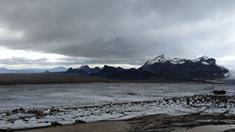
Langjökull es, tras el Vatnajökull, el segundo de los glaciares por tamaño de Islandia. Se encuentra[...]
Glaciar, cueva, cascada y aurora polarTe recomendamos viajar entre el 28 nov. – 5 dic. para obtener [...]
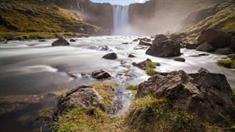
Egilsstaðir es una ciudad en el este de Islandia, una de las mayores de la región de Austurland.
Cascada, rangifer tarandus y lagoTe recomendamos viajar entre el 28 nov. – 5 dic. para obtener un bu[...]

Las Islas Vestman, son un grupo de islas al sur de Islandia, pertenecientes a una de las 14 ciudades[...]
Archipiélago islandés conocido por el volcán Eldefll, el museo Eldheimar y el Museo Folclórico Sagnh[...]
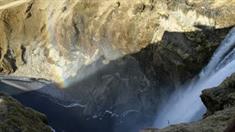
Skógar es una pequeña villa islandesa ubicada al sur del glaciar Eyjafjallajökull, en la municipalid[...]
Cascada, senderismo, museo, glaciar y ríoTe recomendamos viajar entre el 28 nov. – 5 dic. para obten[...]
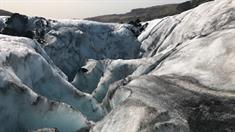
Mýrdalsjökull es un glaciar en el sur de Islandia. Se encuentra situado al norte de Vík í Mýrdal y a[...]
Glaciar, cueva, volcán y senderismoTe recomendamos viajar entre el 28 nov. – 5 dic. para obtener un [...]
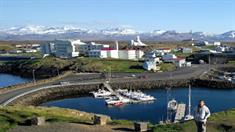
Stykkishólmsbær es un municipio de Islandia. Se encuentra en la zona central de la región de Vesturl[...]
Fratercula, iglesia y aurora polarTe recomendamos viajar entre el 28 nov. – 5 dic. para obtener un b[...]

Heimaey es una isla de Islandia. Se encuentra a 7,4 kilómetros al sur de la costa de Islandia y es l[...]
Fratercula, volcán y elephantidae
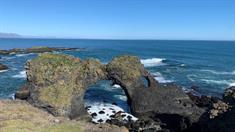
Julio Verne, acantilado y senderismoTe recomendamos viajar entre el 28 nov. – 5 dic. para obtener un[...]
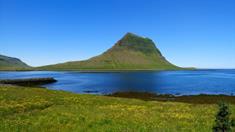
Grundarfjörður es un pueblo y un municipio de Islandia, situado en la vertiente septentrional de la [...]
Avistamiento de cetáceos y montañaTe recomendamos viajar entre el 28 nov. – 5 dic. para obtener un b[...]
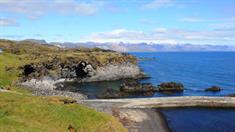
Acantilado, senderismo y aurora polarTe recomendamos viajar entre el 28 nov. – 5 dic. para obtener u[...]
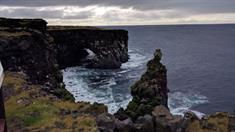
El parque nacional Snæfellsjökull o del glaciar Snæfell es el único parque nacional de Islandia qu[...]
Parque, glaciar y senderismoTe recomendamos viajar entre el 28 nov. – 5 dic. para obtener un buen pr[...]
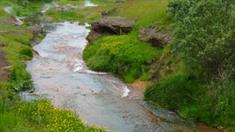
Flúðir es un pequeño pueblo situado en el municipio de Hrunamannahreppur, en la región de Suðurland,[...]
Aguas termales, laguna costera y golfTe recomendamos viajar entre el 28 nov. – 5 dic. para obtener u[...]